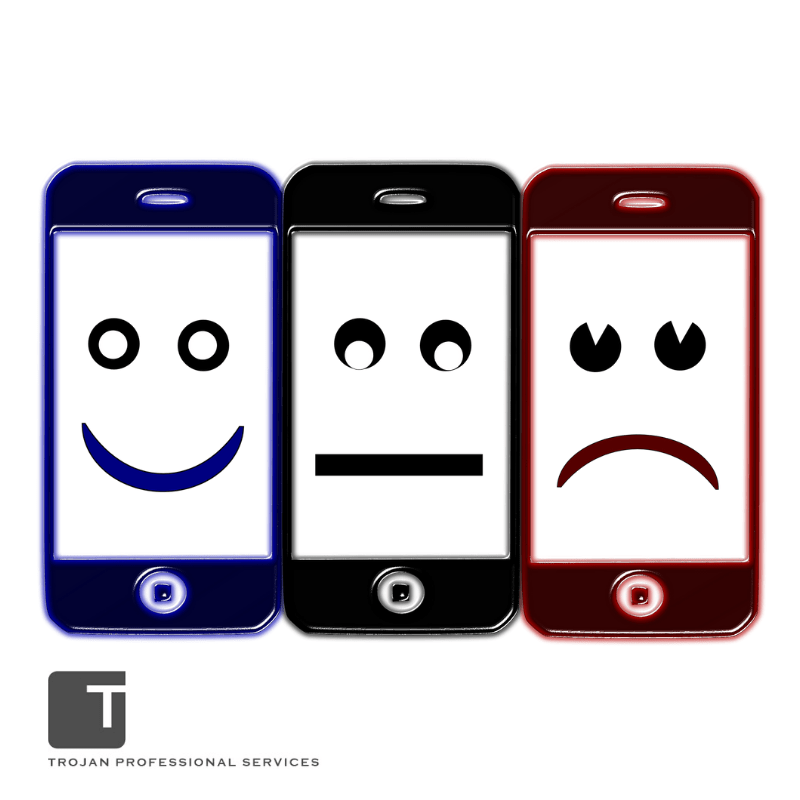Originally published in 2013
I am a happy owner of a first generation iPhone. I really like this amazing piece of technology. I like the convenience of being able to receive and make calls from almost anywhere. I like having my address book available and my calendar always at my fingertips. I have even texted to make quick connections that can add value or just be fun. There are several apps that are really cool. I can listen to podcasts while sitting or walking. It is great to have maps to find my way to a new location. I like to be able to check my home phone (yes, I still have one of those) when I am out of town. I really like having a dictionary at my fingertips when a word appears that I don’t know. The list goes on and on.
As wonderful as this modern technology is, however, I have some real concerns. I was shocked the other night at a dinner party when the host at the head of the table temporarily withdrew from guests while remaining at the table to check emails and texts. I don’t know whom they were from but I was sorry he could not wait for a break to pick them up. I am insulted when I am in a one-on-one conversation and the other person stops, takes his phone from the holster, and puts me on hold while he takes care of other business. I am disturbed when I see couples dining or attending a movie together, both connecting to others instead of being totally present with their dates.
Being able to communicate all the time is possible but it isn’t necessarily healthy. A recent survey of 2,254 adults found 44% of cell phone owners had slept with their phones next to their bed and 67% had experienced “phantom rings,” i.e. checking their phone even when it was not ringing or vibrating. Some companies are requesting or demanding that employees turn off their work cell phones from 6 p.m. until 6 a.m. so they can be more rested and engaged during their working hours.
Research by Carnegie Mellon University’s Human-Computer Lab found evidence that the mere possibility of an incoming phone call or email can drain your brainpower.
Distractions do matter. Multitasking is a misnomer. Juggling email, phone calls, text messages, Facebook, and a meeting means ”rapid toggling between tasks.” Switching tasks involves costs. When your brain switches tasks there is a loss that is hard to qualify but very real.
Other research has suggested cell phones have created more space between people rather than increasing our personal intimacy. I seek to deepen my relationships with family, friends, associates, and others. A balance between personal and professional life is less possible when there is no time during the week when I am not available to anyone who has my number. As an Appreciative Inquiry Coach, I keep reminding my clients and my friends that life is so precious and so short. It is important to live life on purpose. “It’s your life. Don’t miss it.”
In living my life on purpose, I have set some standards for myself and I offer them to you for consideration. Your standards will be different, but I do encourage you to be intentional in the use of your smart phone and not let it control your life. Planning in advance how you are going to use your time and energy is much better than looking back and regretting the past.
As a professional I will:
1. Never let the phone become a barrier between me and my client, customer, friend, or other. When I have a scheduled appointment I will be fully present to that person and let the phone wait until I have a break. Unless it is an emergency I don’t need to answer the phone when I am professionally engaged with someone. This is so obvious for a dentist or a cardiologist and it is good policy for me as well.
2. Use my smart phone as a tool and not let it use me. During a meeting with individuals or groups I will ignore the vibration until a break. Even though I can “get away with it” I won’t respond to texts in secret during a meeting. I don’t have to always be saying something at the meeting, but I will be fully present to show my respect for the others who are taking time to be here as well.
3. I will inform colleagues, clients, and friends that I do respond to email, text, and phone calls. I will do that within 12 hours or so and not immediately. By setting certain times to respond to incoming messages I can be in better balance.
As a person I will:
1. Leave my phone locked in the car or turned off when dining, attending the theater or movie, or other such activity. I will be intentional in being present to the moments of my life rather than being available to others outside the event.
2. Take some time every day and extended time every week when I am not “plugged in” to my modern technology. I call this meditation or “a forest day.” The wonderful advances in communication technology cannot replace my human need for rest and reflection.
3. Continue to pursue my most intimate and meaningful relationships in real time with real people in eyeball-to-eyeball connections. I know love and intimacy can be expressed through the wonders of electronics but for me I feel more human with real physical contact.
Dr. David Nelson is an “Appreciative Inquiry” coach.
FMI: David Nelson (typepad.com)
Read more from David:

